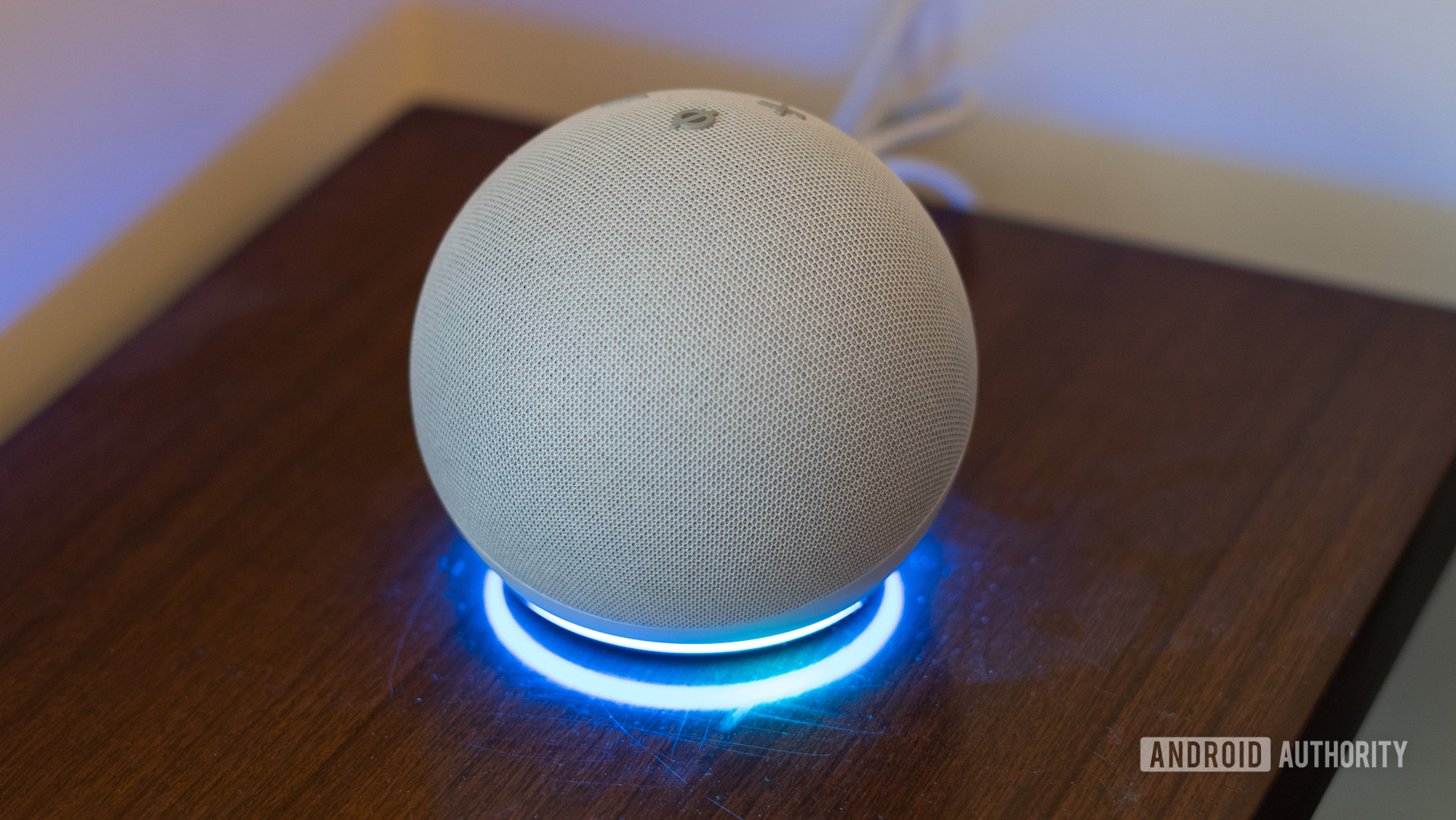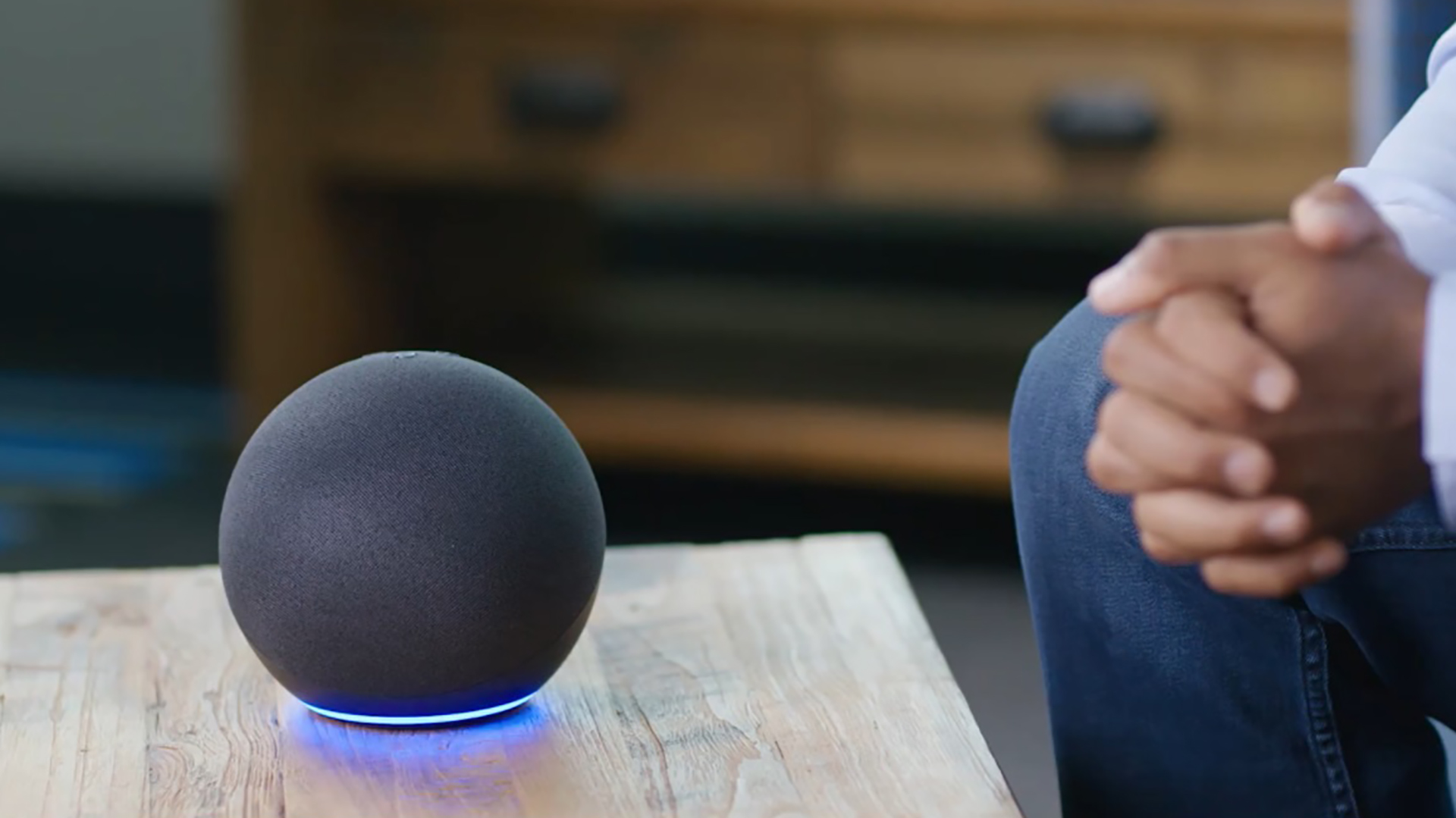Echo Dot vs Nest Mini vs HomePod mini: Which one to get?
The best way to get into both smart speakers and smart homes is often via a budget speaker. Since you’re not putting hundreds of dollars on the line, there’s little sunk cost preventing you from switching platforms, and that one purchase may even be enough. So, which budget speaker is the best overall? Let’s find out in this Echo Dot vs Nest Mini vs HomePod Mini comparison.
Amazon Echo Dot vs Google Nest Mini vs Apple HomePod Mini: Specs comparison
| Amazon Echo Dot (4th-gen) | Google Nest Mini | Apple HomePod mini | |
|---|---|---|---|
|
Speaker Output: |
Amazon Echo Dot (4th-gen)
Mono 1.6-inch speaker |
Google Nest Mini
40mm driver with “360-degree sound” |
Apple HomePod mini
“Full-range” driver and “dual passive radiators” with “360-degree sound” |
|
Ports & Connectivity: |
Amazon Echo Dot (4th-gen)
802.11ac Wi-Fi, Bluetooth (with A2DP and AVRCP), 3.5mm, Amazon Sidewalk |
Google Nest Mini
802.11ac Wi-Fi, Bluetooth 5.0 |
Apple HomePod mini
802.11n Wi-Fi, Bluetooth 5.0, Thread, Apple ultra-wideband chip (UWC) |
|
Voice Assistant & Smart Home Platforms: |
Amazon Echo Dot (4th-gen)
Amazon Alexa |
Google Nest Mini
Google Assistant, Google Home |
Apple HomePod mini
Siri, HomeKit |
|
Supported Mobile Platforms: |
Amazon Echo Dot (4th-gen)
Android, iOS |
Google Nest Mini
Android, iOS |
Apple HomePod mini
iOS |
|
MSRP: |
Amazon Echo Dot (4th-gen)
$49.99 |
Google Nest Mini
$49 |
Apple HomePod mini
$99 |
What is the HomePod Mini, and should you get it?

We’re starting this discussion with the HomePod Mini because it’s very different from its rivals. It’s $50 more expensive and requires an iPhone or iPad, whereas Amazon and Google’s products will also work with most Android devices. There’s no way to set up a HomePod without buying into Apple’s mobile ecosystem. If you’ve got an Android phone, “HomePod mini vs Echo Dot vs Nest Mini” instead becomes a two-way battle.
You are getting value for your money, though, mainly in the form of superior audio and deep integration with other Apple products. While Apple is vague on specifications, the HomePod Mini does sound better than Amazon and Google’s entry-level speakers, thanks in part to a clever 360-degree acoustic design and real-time tuning to match whatever room you’re in.
Apple platform integration includes things like HomeKit accessories, Siri voice commands, AirPlay 2 casting, and the ability to set one or two Minis as default speakers for an Apple TV 4K. If you have an iPhone with a U1 ultra-wideband chip, you can bring it near the top of your HomePod and switch music sources on the fly.
Apple doesn’t offer much in the way of alternative music and radio options if you don’t want Apple Music as your default service — you’ll need AirPlay to listen to Spotify, for example. It’s worth noting, though, that the HomePod Mini is one of the first smart speakers to support Thread. This cross-platform mesh networking technology should (eventually) make it easier for smart home devices to stay connected while consuming less power. Neither the Echo Dot nor the Nest Mini support Thread yet.
Pros:
- Superior sound quality with automatic room tuning
- Deep integration with Apple’s ecosystem
- Support for Thread smart home networking
Cons:
- Expensive for an entry-level smart speaker
- Requires an iPhone or iPad for setup
- Limited support for non-Apple music and radio services
Nest Mini vs HomePod Mini

The Nest Mini is, in some ways, the opposite of a HomePod. It’s cheap and compact and more focused on utility than sound. Google says the latest model has twice the bass of its predecessor and “360-degree sound.” However, it’s still not going to wow anyone — if oomph (or fidelity) matters, you’re better off taking advantage of the Nest’s Bluetooth 5.0 support to pair with a more powerful speaker.
What we mean by utility is that it’s really a foothold for Google Home and Google Assistant. The latter is the best voice assistant on any smart speaker, mainly because it taps into the vast knowledge of Google Search. Google Home, meanwhile, offers a substantially greater number of compatible smart home accessories than Apple’s HomeKit, including, of course, Google’s other speakers and displays. You can also connect a more diverse range of music and radio services than Apple allows, including Spotify and Google’s own. If you want YouTube Music or Google Podcasts, Nest speakers are the way to go.
Pros:
- Best voice tech in the form of Google Assistant
- A diverse range of supported services, including Google’s own
- Inexpensive and compact
Cons:
- Sound quality is merely adequate
- No support for Thread or other advanced smart home networking (yet)
Google Nest Mini (2nd Generation)

Dhruv Bhutani / Android Authority
The fourth-generation Echo Dot looks a lot like the full-sized Echo with its spherical design, but make no mistake, it’s closer to the Nest Mini in output quality than either the Echo or HomePod Mini. However, its sound is slightly louder and richer than the Nest, so if you’re trying to get the most bang for your buck, the Dot has the advantage. There’s also a 3.5mm jack, something absent even from the $99 HomePod.
The Dot’s greatest strengths are Alexa integration and, depending on how you feel about it, Amazon Sidewalk. Alexa matters because it’s the most widely-supported smart home platform, meaning there’s a lot of accessories to choose from. Its Android and iOS apps are also the easiest to use, and while Amazon and Google aren’t playing nicely with each other, the Dot still supports a wide range of services. Sidewalk can potentially provide Thread-like network expansion and reliability, but it’s unique to Amazon, and a “small” portion of your Wi-Fi bandwidth is shared with neighbors for the same purposes. You can disable the feature if it bothers you.
Pros:
- Best sound quality under $50
- Alexa integration offers the smartest home accessories, best mobile app, and diverse audio services
- Amazon Sidewalk can improve connectivity
- 3.5mm jack adds to secondary output options
Cons:
- It still doesn’t sound as good as a HomePod Mini
- Amazon Sidewalk raises bandwidth and security concerns, although it can be disabled
Amazon Echo Dot (4th Gen)

None of the three speakers have a fatal flaw, so for the most part, it comes down to preferences in platforms and services. For example, a Nest Mini may not sound fantastic, but it’s still alright, and the benefits of Google Assistant combined with Google Home can be tempting. If you rely on Google for music and podcasts or already have other Google/Nest devices, it’s an obvious choice.
That said, based solely on its own merits, the safest option is the Echo Dot. It has a solid price-to-performance ratio, and the value of Alexa’s accessory compatibility and the well-designed app is hard to ignore. The HomePod Mini may win in terms of pure audio quality but costs more and locks you into the Apple ecosystem. If Apple added Android and Spotify support, the speaker might win more converts.
More: The best Apple HomePod deals
For all the latest Technology News Click Here
For the latest news and updates, follow us on Google News.
